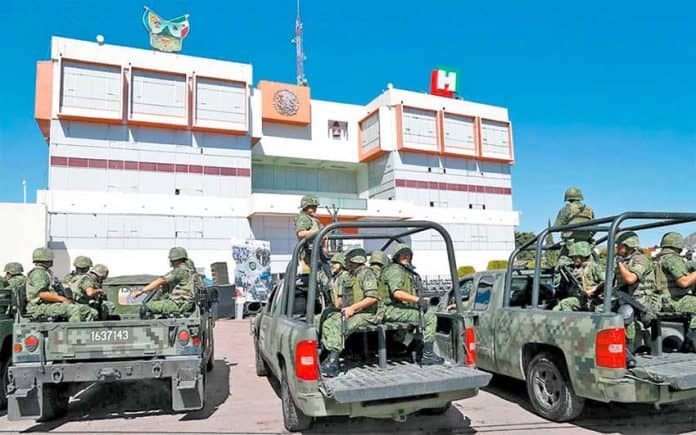The federal government deployed 52,807 soldiers to fight Mexico’s notorious drug cartels last year, the highest number in the 12-year war on drugs, statistics show.
The record deployment was spread across several states in various regions of the country.
The Secretariat of Defense sent more than 6,000 soldiers to Guerrero, where criminal groups such as the Guerreros Unidos, Los Ardillos and Los Rojos operate. The southern state is one of Mexico’s poorest and most violent and is also a large opium poppy producer.
In Jalisco, the main target of a deployment made up of 5,535 soldiers was the Jalisco New Generation Cartel (CJNG), which was allegedly responsible for torturing and killing three film students near Guadalajara in March of this year.
The same cartel was blamed for an attack in May on Luis Carlos Nájera, the former attorney general of Jalisco who is now the state’s labor secretary.
In 2017, the army was also sent to carry out public security duties in Tamaulipas, Nuevo León and San Luis Potosí among other states.
Former president Felipe Calderón launched the military-based crime-fighting strategy shortly after he took office in December 2006 by sending 6,500 troops into his home state of Michoacán.
During 2007 — his first full year in office — 45,000 soldiers were deployed across the country.
The size of the deployment was increased to 48,650 in 2009 as the number of soldiers, marines and Federal Police losing their lives in confrontations with organized crime continued to grow.
That number was maintained until the end of Calderón’s six-year term in 2012.
The highest concentration of troops during the National Action Party (PAN) administration was in the northern border city of Ciudad Juárez, Chihuahua, which had been considered the most dangerous city in the world.
During 2013 — current President Enrique Peña Nieto’s first full year in office — the number of deployed troops shrank to just over 34,500 but the number grew by more than 50% over the following years to reach the 2017 figure.
With more than 29,000 homicides, 2017 was also the most violent year in at least two decades while more than 200,000 people have been murdered in the 12 years since the crackdown on cartels began, leading many observers to conclude that the war on drugs strategy has failed.
In addition, more than 30,000 people are missing and federal security forces, including the army and navy, have been suspected of being involved in enforced disappearances and other human rights abuses.
The disappearance of 43 students in Guerrero in 2014, a massacre that left 22 civilians dead in Tlatlaya, México state, the same year and the abduction this year of 23 people in Tamaulipas are among the cases in which the role of the military has been called into question.
The incoming Andrés Manuel López Obrador government has said that it plans to gradually withdraw the military from public security duties on the nation’s streets.
The next government’s strategy — which also proposes better training, pay and conditions for police — was applauded by a security collective earlier this month, which said that the measures are in accordance with what national and international organizations have recommended.
Source: Milenio (sp)
